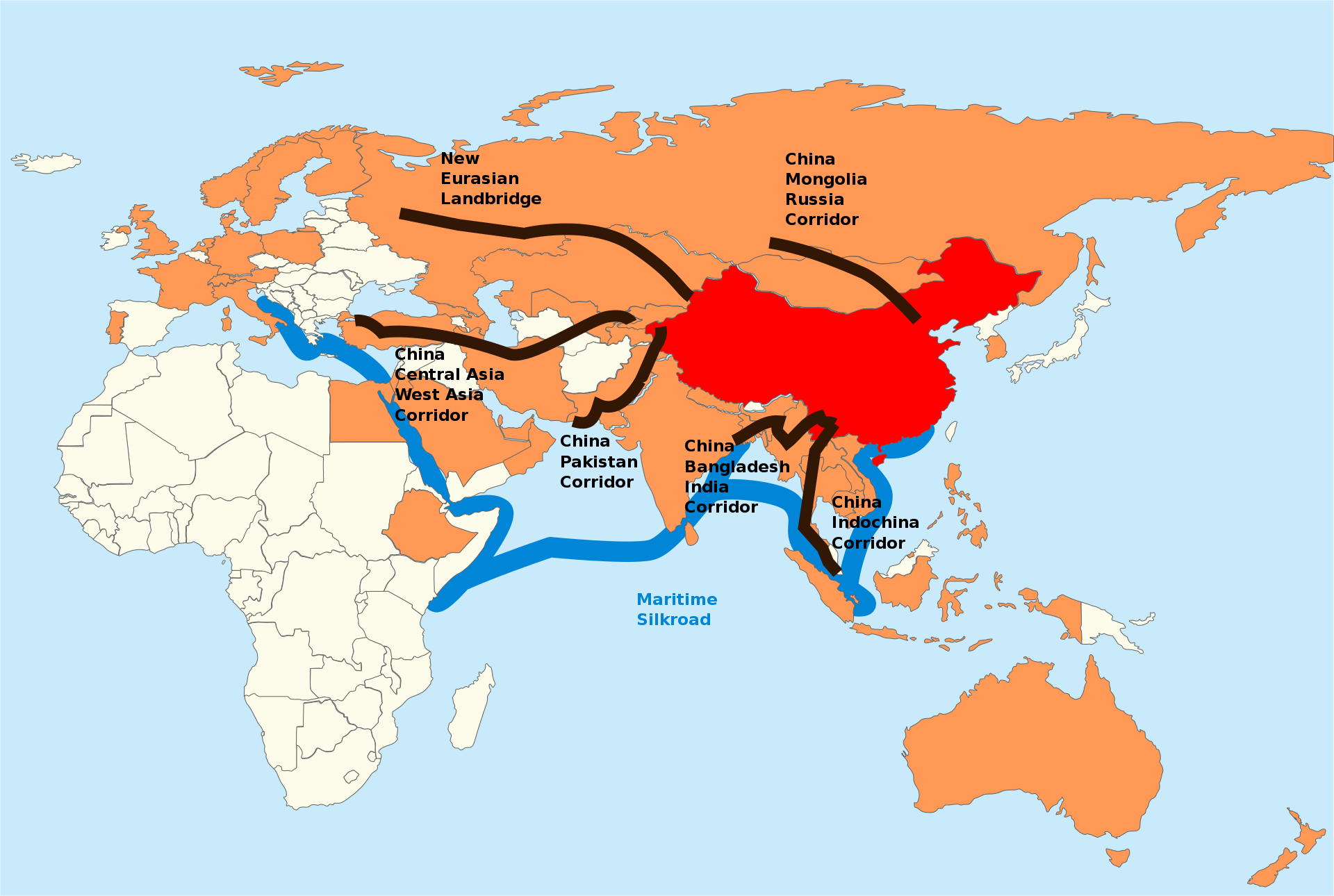More languages
More actions
 | Some parts of this article were copied from external sources and may contain errors or lack of appropriate formatting. You can help improve this article by editing it and cleaning it up. (November 2021) |

The Belt and Road Initiative (BRI) is a global infrastructure development strategy adopted by the Chinese government in 2013 to invest in nearly 70 countries and international organizations. It is considered a centerpiece Xi Jinping's foreign policy.[1]
The BRI is one of the many factors which is leading to de-dollarization[2] the decline of the influence of the US empire,[3] and enhanced economic growth of non-aligned countries.
The project has a target completion date of 2049.[4]
In 2021, Cuba has joined the BRI project for the purpose of expanding its telecommunications and green energy industries.[5] Syria has also joined.[6]
Reactions
The BRI has been demonized by Western bourgeois media on the basis that it's a "debt trap"[7] or an example of so-called "Chinese imperialism," but these claims serve only propaganda purposes and are not founded in evidence.[8][9][10]
References
- ↑ "President Xi proposes Silk Road economic belt".
- ↑ https://moderndiplomacy.eu/2018/04/09/the-de-dollarization-in-china/
- ↑ Danny Haiphong. "U.S. imperial Decline and the Belt and Road Initiative: The Most Important Global Struggle of the Century" Black Agenda Report.
- ↑ https://www.pr.com/press-release/780645
- ↑ "Cuba Formally Joins China's Belt and Road Energy Partnership" (2021-10-18). TeleSUR.
- ↑ "Syria Officially Joins China's Belt and Road, Seeking Lifeline to Defy U.S. Sanctions" (2022-12-01).
- ↑ "China's debt-trap diplomacy". The Hill.
- ↑ "Debunking the Myth of ‘Debt-trap Diplomacy’". Chatham House.
- ↑ "The Chinese 'Debt Trap' Is a Myth". The Atlantic.
- ↑ "Catagorically Debunking the Claim that China is Imperialist".
